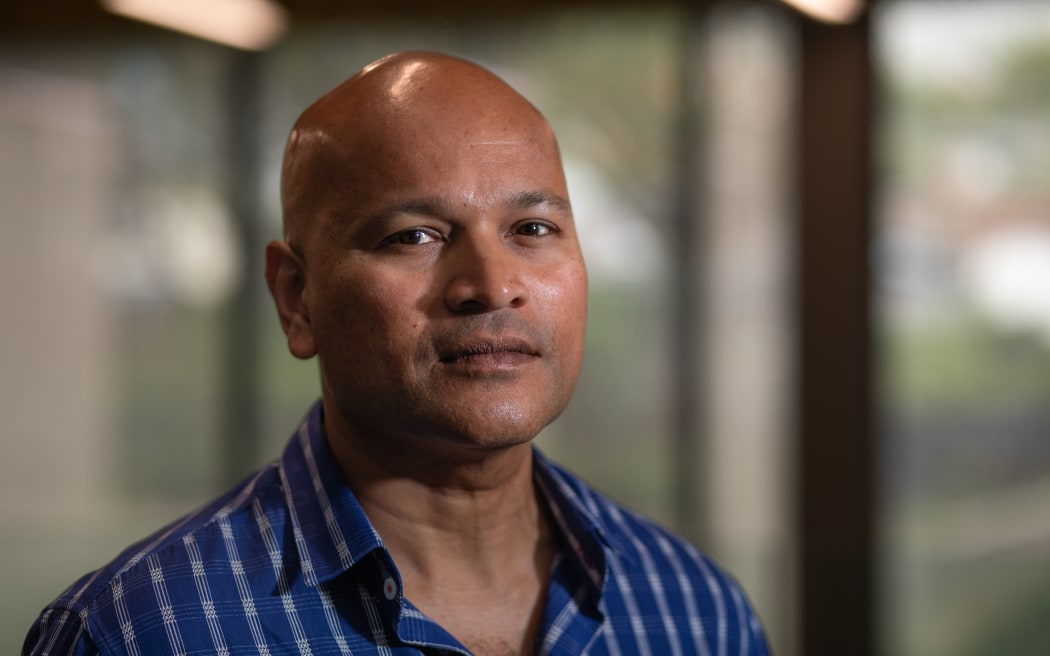
Autism is believed to affect approximately one in every 36 children. Photo: RNZ
Autistic children and young adults are more than twice as likely to die before their 25th birthday, compared to their non-autistic peers, new research shows.
The risk is even greater for females and those who also had an intellectual disability, an Otago University-led study has found.
Autism New Zealand described the findings as "horrendous", saying the study supported its own findings that the health system did not adequately support people with the disorder.
The study is the first of its kind in New Zealand, with results similar to the handful of similar international studies showing autistic adults and young people experience significantly higher risk of death, compared to the general population.
Autism is a lifelong neurodevelopmental condition that affects how people perceive and communicate with the world. It affects about one in every 36 children.
The study, published this week in the international academic journal Autism, tracked 857,944 children born in Aotearoa - including 11,919 autistic children - between 1996 and 2010 using individual-level data from the government's Integrated Data Infrastructure (IDI).
It found autistic females were four times more likely to die, compared to non-autistic females.
The risk doubled for autistic people who also had an intellectual disability, compared to those without an intellectual disability.
The reasons why autistic youth were more likely to die earlier than their peers in the general population were not known, but there were plans to look into this further, said study co-author Hiran Thabrew, a child psychiatrist and paediatrician at Auckland's Starship Hospital said.
International research had identified medical conditions such as cancer and heart disease, accidents - especially choking and poisoning - and medication complications as leading causes of death among autistic people.
"The rates of medication are higher amongst autistic children and adolescents than the general population, and given what we've seen from international data saying that medication complications are one of the main causes of death in this group, we'd expect it's similar in the New Zealand group as well," Thabrew said.
"Particularly for those who might be more severely autistic, or intellectually impaired, often behaviours are managed using medication, partly because of lack of other services."

Dr Hiran Thabrew Photo: RNZ / Cole Eastham-Farrelly
The results highlighted the need for timely diagnosis and care for autistic people, particularly for those who might be more severely autistic, or intellectually impaired.
The average age of diagnosis in New Zealand was between six and seven years.
"We know that it's a much better prognosis and life course for them if they're diagnosed before they start school," Thabrew said.
Early identification is vital
Autism NZ chief executive Dane Dougan said earlier diagnosis and support was critical for autistic children.
"These statistics are horrendous, but something Autism NZ has been conscious of for some time.
"What we do know is the earlier we identify, diagnose and support our autistic tamariki, the less at-risk they are, and the more likely they are to live the life they choose."
The health system, especially the mental health system, was not designed for the autistic and there was often a lack of training among health professionals about the disorder.
"Access is a problem, and if you do have access, if you don't get somebody who understands autism very well it can at times make things worse."
Autism NZ had been involved in training health professionals about autism and it was pushing for a distinct pathway for autistic people to improve access and health outcomes.
Seven years old was "far too late" for a child to receive an autism diagnosis, Dougan said.
"Because you can start to actually pick up signs of autism at about 12 months, and there's even research going on now that it can be earlier than that."
Autistic people were also more likely to suffer from anxiety and depression and have neurodevelopmental issues like ADHD and intellectual disability, while about a third had epilepsy which could be fatal if not treated.
The much higher mortality risk among autistic girls identified in the Otago study may be due to their "long-term under-diagnosis" which limited their access to early help, Thabrew said.
Study co-author Joanne Dacombe, who is herself autistic, said getting an early diagnosis was currently "very challenging".
"There are long waitlists…and even if you do get a diagnosis, then the process for a follow up is long and there's not necessarily the support in place for the family. There is not a lot of speech therapy publicly available, for example, and private is unaffordable for many families."
Dougan said there needed to be not only early support, but ongoing peer-to-peer support throughout an autistic person's life.
"The earlier we identify, diagnose and support our autistic tamariki, the less at-risk they are, and the more likely they are to live the life they choose.
"To see the results of almost twice the amount of mortality rates in our autistic community, and particularly females and those with comorbid diagnosis, is a scary, scary stat.
"To have the information is helpful. The key part is what do we do with it moving forward? And how do we ensure that figure goes down?"
The study was done in collaboration with researchers from Victoria University of Wellington, University of Canterbury, Auckland University and Canada's Memorial University of Newfoundland and Labrador.






